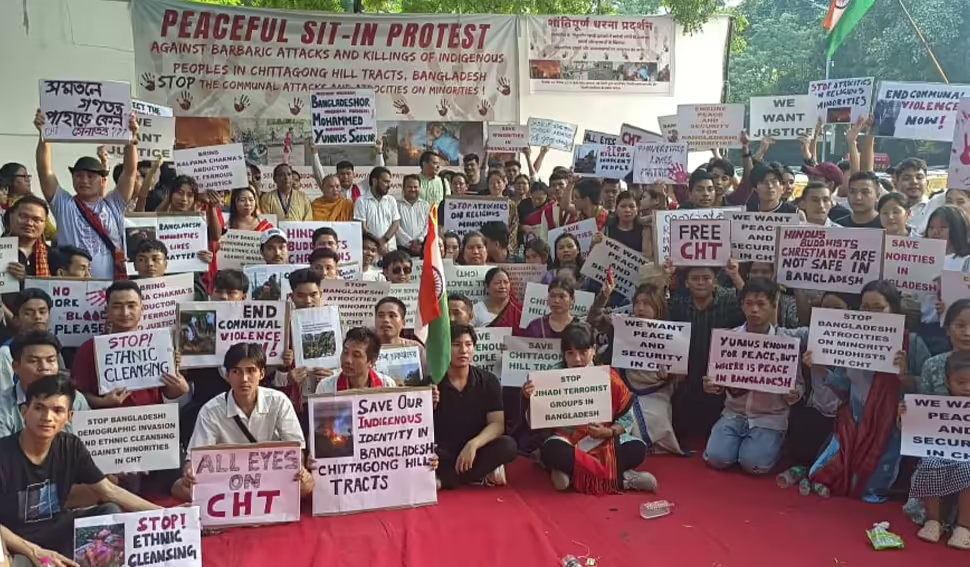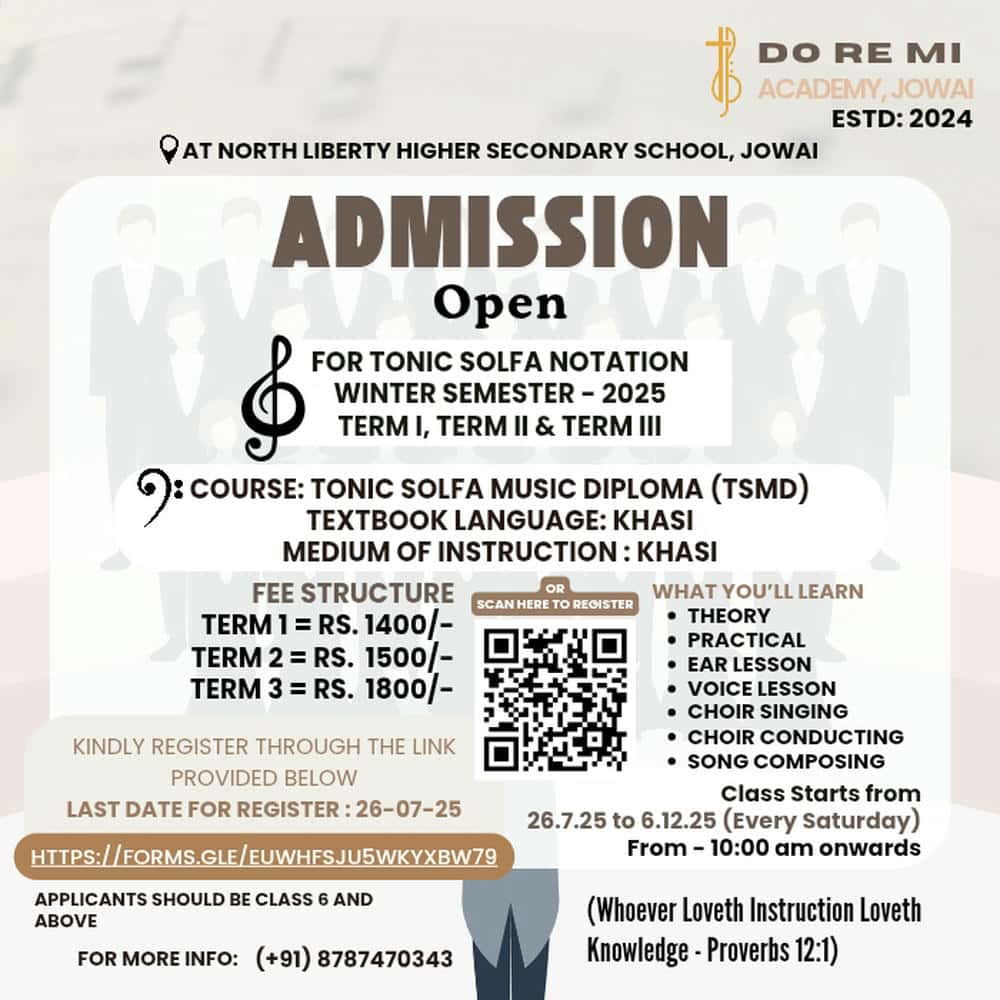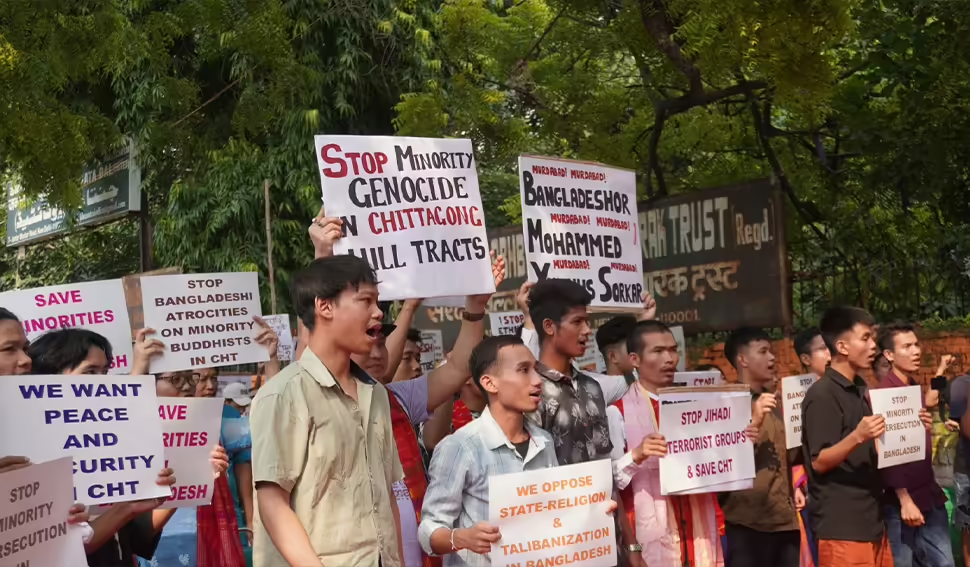Chakma groups stage protest in Delhi against violence against minorities in Bangladesh

Members of the Chakma community, under the banner of the Delhi Chakma Students’ Union (DCSU), held a massive protest at Jantar Mantar in New Delhi on Monday, condemning the “organized communal attacks” against indigenous hill tribes in the Chittagong Hill Tracts (CHT) of Bangladesh.
These attacks, allegedly carried out by Muslim settlers and the Bangladesh Army on September 19 and 20, have resulted in the deaths of six indigenous people, including four students. Many were injured or went missing, while thousands, including infants, children, and women, fled into the forests to escape the violence.
The protest at Jantar Mantar aimed to draw attention to the atrocities committed against the indigenous Chakma and other hill tribes, calling for international intervention and urgent measures to ensure their safety. The demonstrators also sought accountability for the perpetrators and justice for the victims of the attacks.
Milani Chakma, president of the Delhi Chakma Students Union (DCSU), condemned the violent attacks on indigenous peoples in the Chittagong Hill Tracts, which took place on September 19 in Dighinala Sadar, Khagrachari district, Bangladesh. The attacks followed the lynching of a Muslim settler, Md Mamun, by a mob after he was caught stealing a motorbike.
Milani stated that Md Mamun’s death was used as a pretext to launch a brutal and organized attack on the indigenous communities in the area.
Backed by the Bangladesh Army, thousands of Bengali settlers rampaged through Dighinala Sadar, torching over 100 houses and shops, killing one indigenous man, and forcing thousands of indigenous people, including infants, children, and women, to flee into the forests for safety. Mosque loudspeakers were reportedly used to incite a mob to attack the indigenous population.
Milani further revealed that according to an FIR filed by Md Mamun’s wife, all the perpetrators named in connection with her husband’s death were fellow Bengali settlers. This indicates that Md Mamun was killed by his own community members, and yet the blame was unjustly placed on the indigenous peoples, fueling the violence against them.
On the evening of September 19, after the attacks in Dighinala, indigenous youth took to the streets in Swanirbhar, Naranghiya, and Upalipara areas of Khagrachari Sadar, organizing a road blockade to protest the violence. At around 9 pm, military vehicles arrived and opened fire on the unarmed protestors, resulting in several casualties and injuries among the indigenous people.
The next morning, on September 20, Jummo (indigenous hill tribes) youth organized a peaceful procession in Rangamati town, in Rangamati district, to protest the attacks. However, they were met with hostility, as Muslim settlers threw stones at them. To further escalate tensions, a mosque’s loudspeaker was used to falsely claim that the indigenous Jummo people were coming to attack the mosque, which incited panic among the local population and urged people to resist. This disinformation spread fear, deepening the communal divide and worsening the violence.
Milani Chakma reported that during the attack by Muslim settlers in Rangamati, two indigenous Jummo youths were killed, and numerous others were injured. Homes and businesses owned by Jummo individuals in areas such as Banarupa, Champaknagar, and Bijon Soroni were set on fire.

Key locations, including the office of the Chittagong Hill Tracts (CHT) Regional Council Chairman and the office of the Parbatya Chattagram Pahari Chhatra Parishad, were also torched. Additionally, the Kathaltali Moitri Bihar Buddhist temple was vandalized and looted, further inflaming tensions.
Live footage from Rangamati showed Bengali settlers, armed with clubs and sticks, walking behind three military pickup trucks in the Fishery Ghaat area around noon, without any intervention from the military. This mob later launched attacks on Jummo individuals and their properties, continuing the wave of violence and destruction.
Milani asserted that the communal attacks on indigenous peoples in the CHT were likely backed by the Bangladesh Army. She demanded a thorough and credible investigation into the military’s role in the attacks, calling on the government of Dr. Muhammad Yunus to establish a UN-led inquiry committee to investigate both the military’s involvement and the actions of the perpetrators. Chakma emphasized the need for justice to be served.
Following their sit-in protest, the DCSU submitted memoranda to Indian Prime Minister Narendra Modi and External Affairs Minister Dr. S. Jaishankar, urging India to intervene strongly to ensure the protection of indigenous minorities in the CHT.
A memorandum was also submitted to Dr. Muhammad Yunus, Chief Adviser of Bangladesh’s Interim Government, through the High Commissioner of Bangladesh to India in New Delhi, reiterating their demands for accountability and protection of the indigenous communities.


Leave a Reply